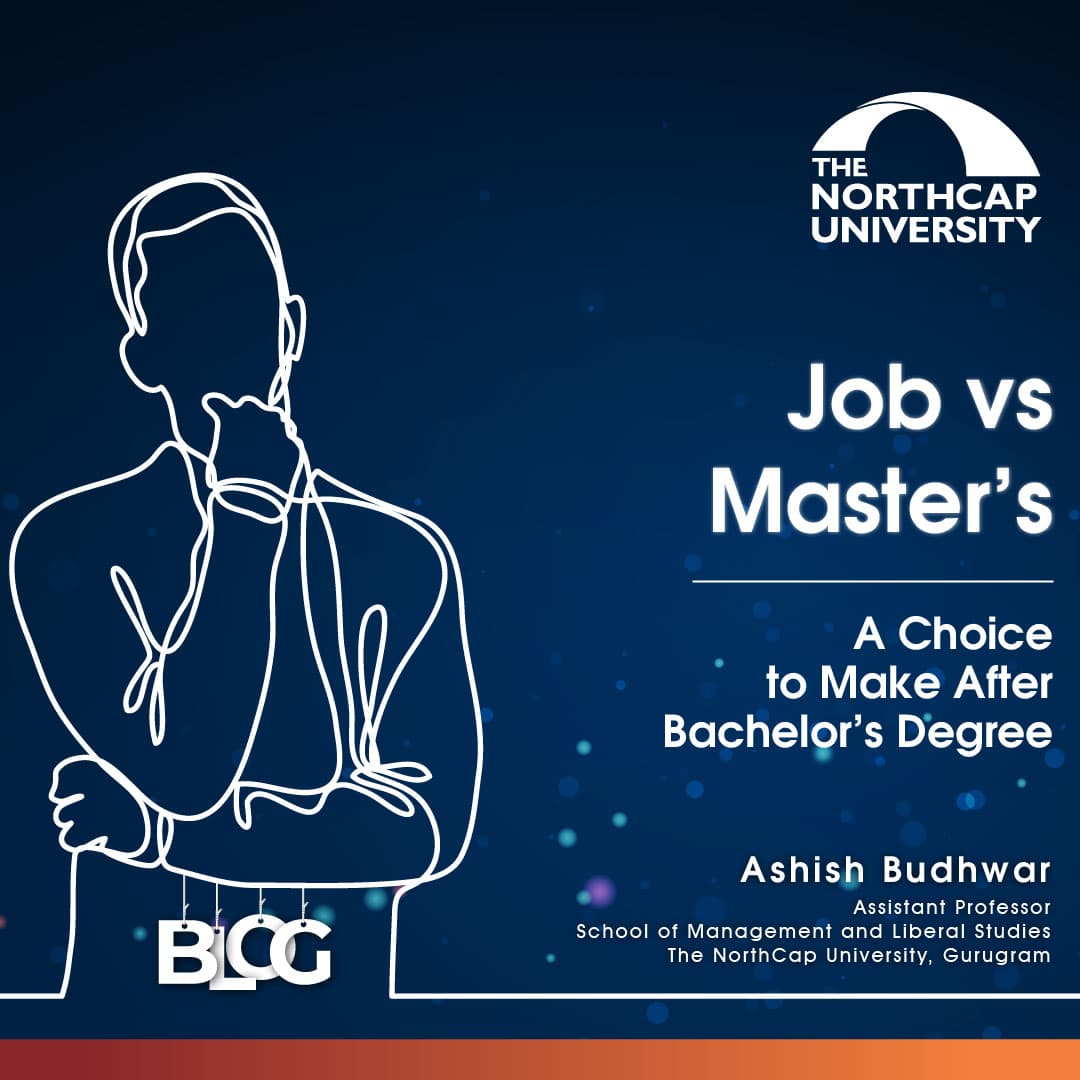Job vs Master’s? A Choice to Make after the Bachelor’s Degree

As soon as a student approaches the final semester of graduation, the decision of making a choice between a master’s and job emerges. This blog does not intend to give a general solution to the students; rather, it attempts to provide some information so that they can make the best decision for themselves. We will weigh the merits and demerits of both options as well as talk about the solutions to overcome them.
Choosing a profession is a matter of pride and a long-term identity. And why not? Since the student has spent so many years of education for this one important thing. And it is also evident that even after master’s or PhD, people will choose to go for a profession only. On the other hand, higher education has always been respected in society and lands us with a better profession. So, let’s discuss the importance of doing a job and the importance of studying further.
Benefits of Choosing a Profession (Choosing a Job)
A profession provides you with:
Economic stability
Sense of identity and autonomy
Status in society
With a purpose and work plan for your future growth
When to Choose for a Job?
Before you choose a Job, ask yourself the following questions:
Does the job pay you enough to sustain and grow in the current and future scenario?
(Do not forget to exclude the cost of maintaining the job – travel, accommodation, technical upgradation, etc. It is even better if your job pays these allowances separately in addition to catering for your health.)
Is your family’s financial situation sustainable without this job? (Not all jobs are done for interest alone, financial stability matters and serves a key role in choosing a job or not).
Are you interested in the job and the responsibilities you would be required to carry out?
(With some time, every job becomes the same. If you have a sense of purpose, it can keep you going through the ups and downs, and the office politics will also bother you less.)
Does the job offer you growth? (Do the promotions require higher degrees? Are the appraisals based on your performance alone or your educational upgradation too?)
Is the job feasible? (The job is not everything. Feasible working hours will allow you to balance out your personal, professional, individual and social growth).
Benefits of Pursuing Higher Education
Higher education is a must for everyone. If you hold a higher education level as compared to your peers, you:
Stand a better chance of growth in an organisation.
Are respected by your peers and colleagues and even the organisation
Have more knowledge through which you can contribute to the growth of your organisation
Will be more sought after by organisations and can even be in a capacity to consult many of them.
Promotions and perks will not bother you much ever.
When to Go for a Masters?
You should consider the following questions when making this choice:
Are you really interested and passionate? (Interest and passion not just for the subject, but also the professions in which you can land in after your master’s).
Is your family’s financial situation stable? (if not, can you look for alternatives to stabilise it?)
If you have answers to the above questions, you can make a decision for yourself. But just for a quick summary, if your job is financially feasible, and offers growth and time to work upon yourselves, then go for it. For academic growth, you can always look for part-time courses or online certifications, or if your organisation offers you a study leave, it’s the cherry on top.
But if you are really passionate and you can delay the gratification of a job for a few more years, you will definitely land up in a profession with a higher status, higher pay and more respect with multiple opportunities for growth.
Author

Ashish Budhwar
Assistant Professor, Department of SOM & LS
The NorthCap University, Gurugram
